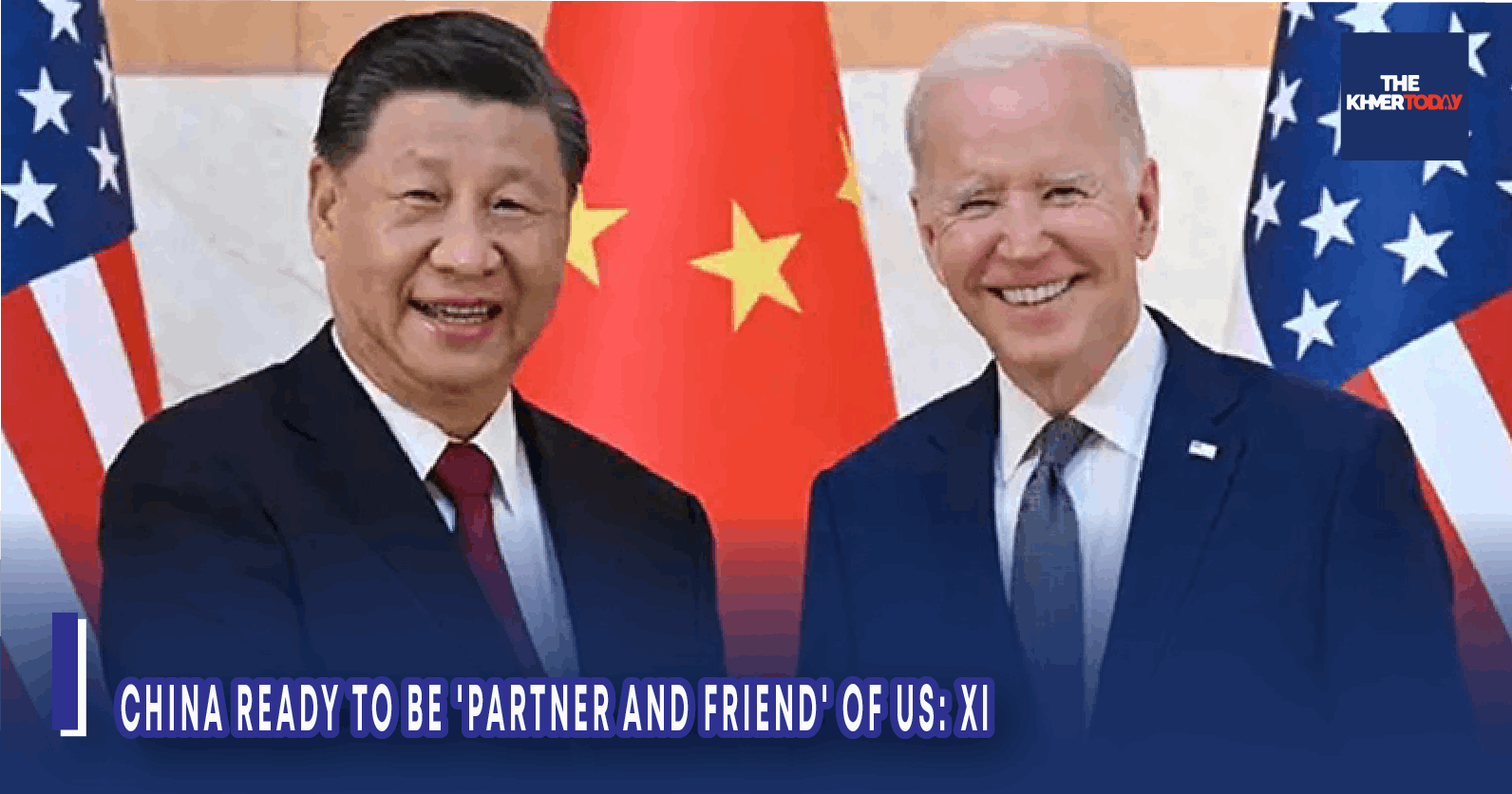China ready to be 'partner and friend' of US: Xi

President Xi Jinping told US business executives on Wednesday that China is "ready to be a partner and friend of the United States," despite growing concerns about the nation's weakening economy.
"This will only lead to wrong policymaking, misguided actions, and unwanted results," he said at a dinner on the fringes of the Asia-Pacific Economic Cooperation (APEC) conference, if one nation views the other as its primary rival and the most significant geopolitical issue.
After meeting for the first time in a year and promising to ease tensions, US President Joe Biden and Chinese Premier Xi made their much anticipated remarks in San Francisco hours later.
Following discussions at the opulent Filoli Estate, the two sides announced a number of agreements, the first of which was the reopening of a high-level military hotline.
"More roads and bridges should be built for people-to-people interactions," Xi declared to a group of about 400 academics, government representatives, and business executives.
"We must not create various obstacles or create a chilling effect," he stated.
A guest list obtained by AFP included Pfizer CEO Albert Bourla, BlackRock CEO Laurence Fink, and Apple CEO Tim Cook.
With concerns about China's stricter business regulations and bilateral tensions, attention was keenly focused on Xi's remarks at the event hosted by the US-China Business Council and National Committee on US-China Relations.
According to US and European company groups, foreign business trust in China reached a record low in September, with US companies seeking to reroute their investments outside.
"Open for business"
According to Lindsay Gorman, senior fellow at the US-based German Marshall Fund, "Xi is interested in signaling that China remains open for business despite geopolitical tensions -- especially around the high tech industries."
Even if some US companies might be keen to ease tensions, she told AFP that "there is a lot more skepticism" from them now than there was ten years ago.
During US Commerce Secretary Gina Raimondo's visit to China this year, Thibault Denamiel, an associate fellow at the Center for Strategic and International Studies (CSIS), observed that Chinese tech firm Huawei had unannounced a new smartphone that involved cutting-edge 7 nanometer technology.
According to him, Chinese authorities seem to be pushing foreign enterprises to continue arriving while also conveying the idea that they can withstand geopolitical challenges like US chip bans.
In addition to announcing on Wednesday that Beijing was prepared to expand collaboration on panda conservation—though no more animal loans were pledged—Xi also stated that China aims to bring 50,000 American youth to the nation for study and exchange programs over the next five years.
The Chinese leader said he would welcome visits from local leaders and members of Congress after meeting California Governor Gavin Newsom recently.
However, Mike Gallagher, a Wisconsin Republican who chairs the bipartisan House Select Committee on the Chinese Communist Party, took aim at the presence of prominent US business leaders at the summit, serving as a reminder of the still fragile condition of US-China relations.
He said in a letter this week that, in light of accusations that the Communist Party has been involved in a "genocide" against people in China's northwest Xinjiang region, it is "unconscionable" for US firms to pay thousands for a welcome meal hosted by the party.
Executives "must recognize that the reality of doing business in China today includes the increased risk of arbitrary detentions, exit bans, and raids by the Chinese intelligence services," Gallagher continued, advising companies to lower the risks they encounter.